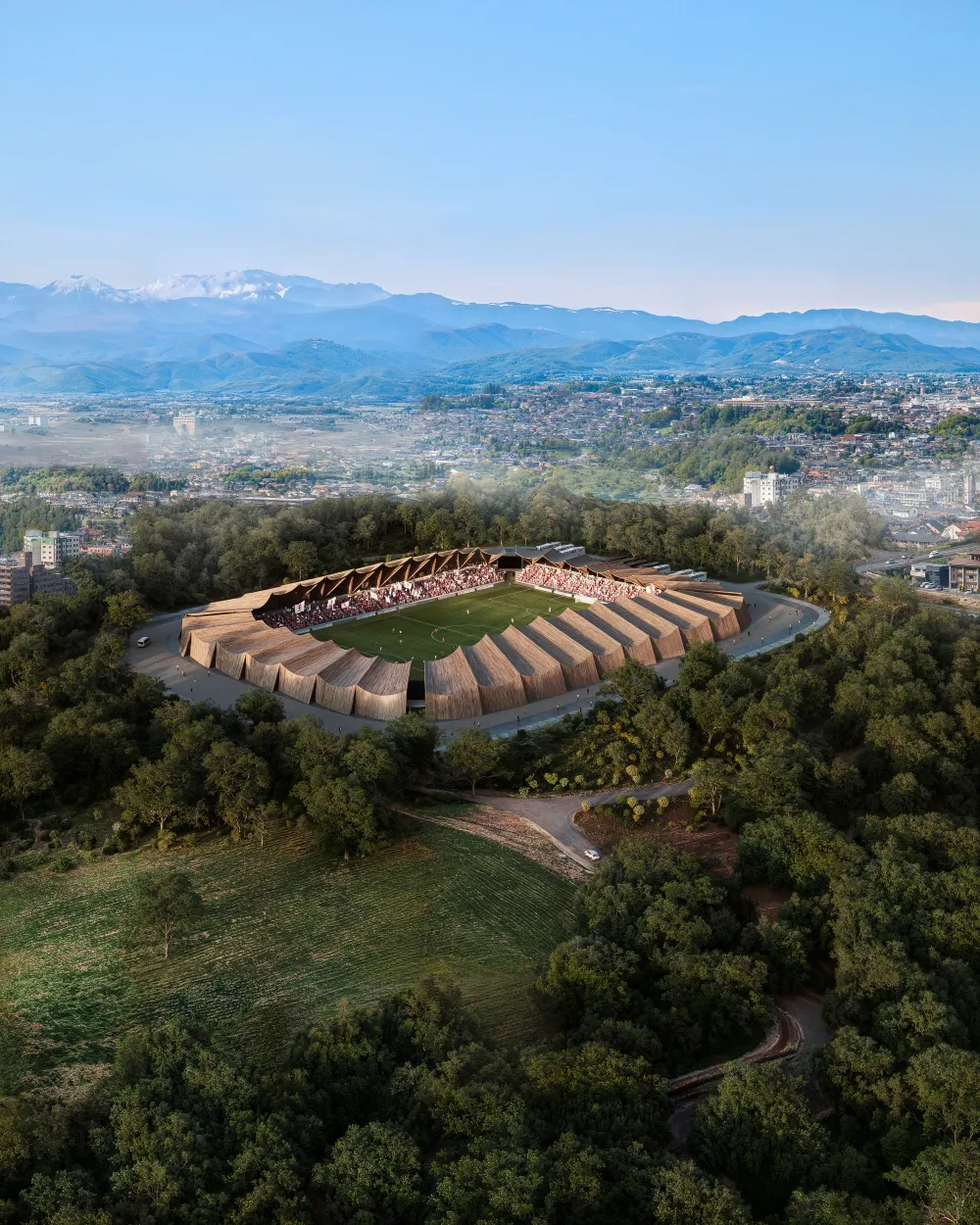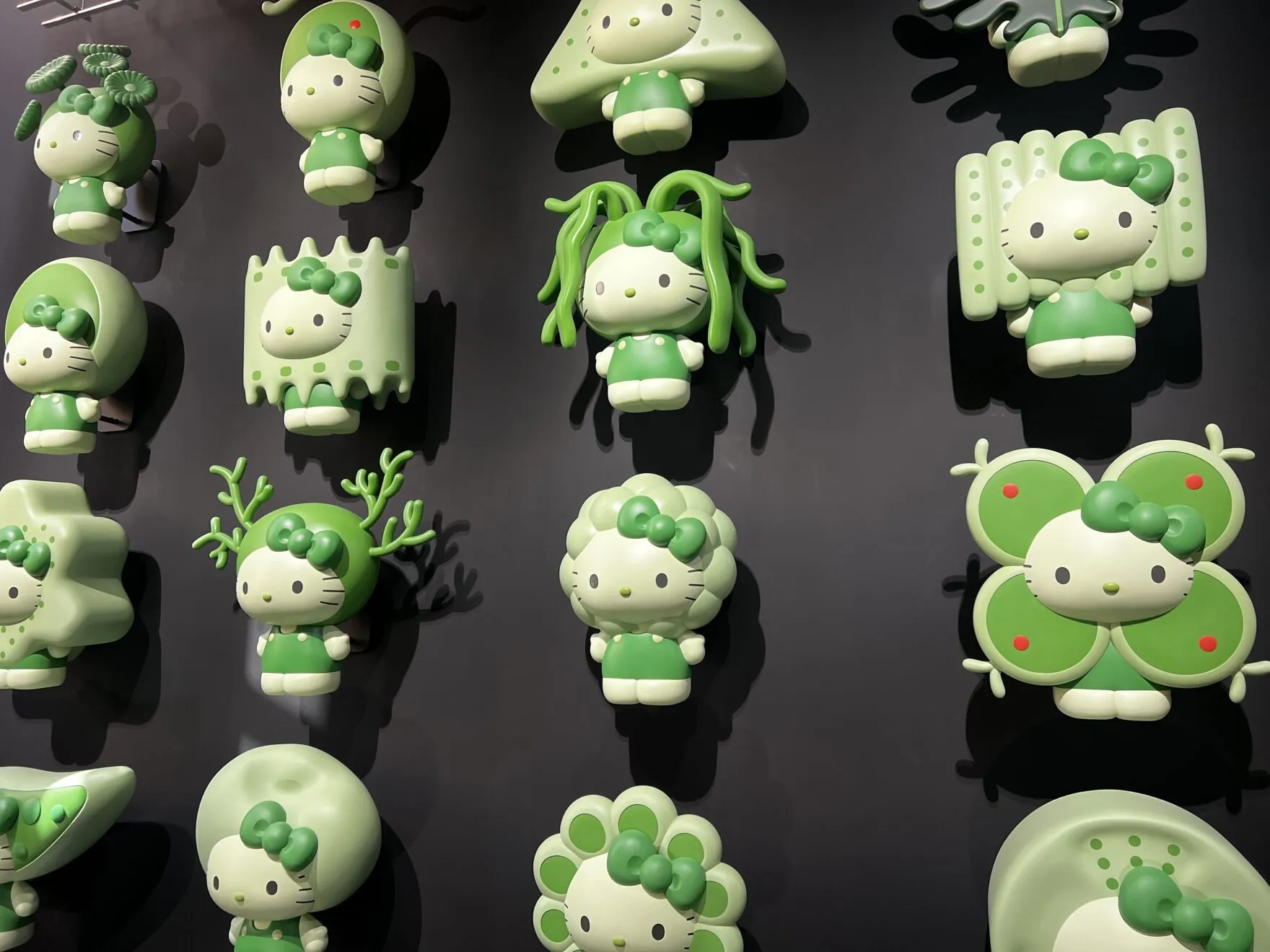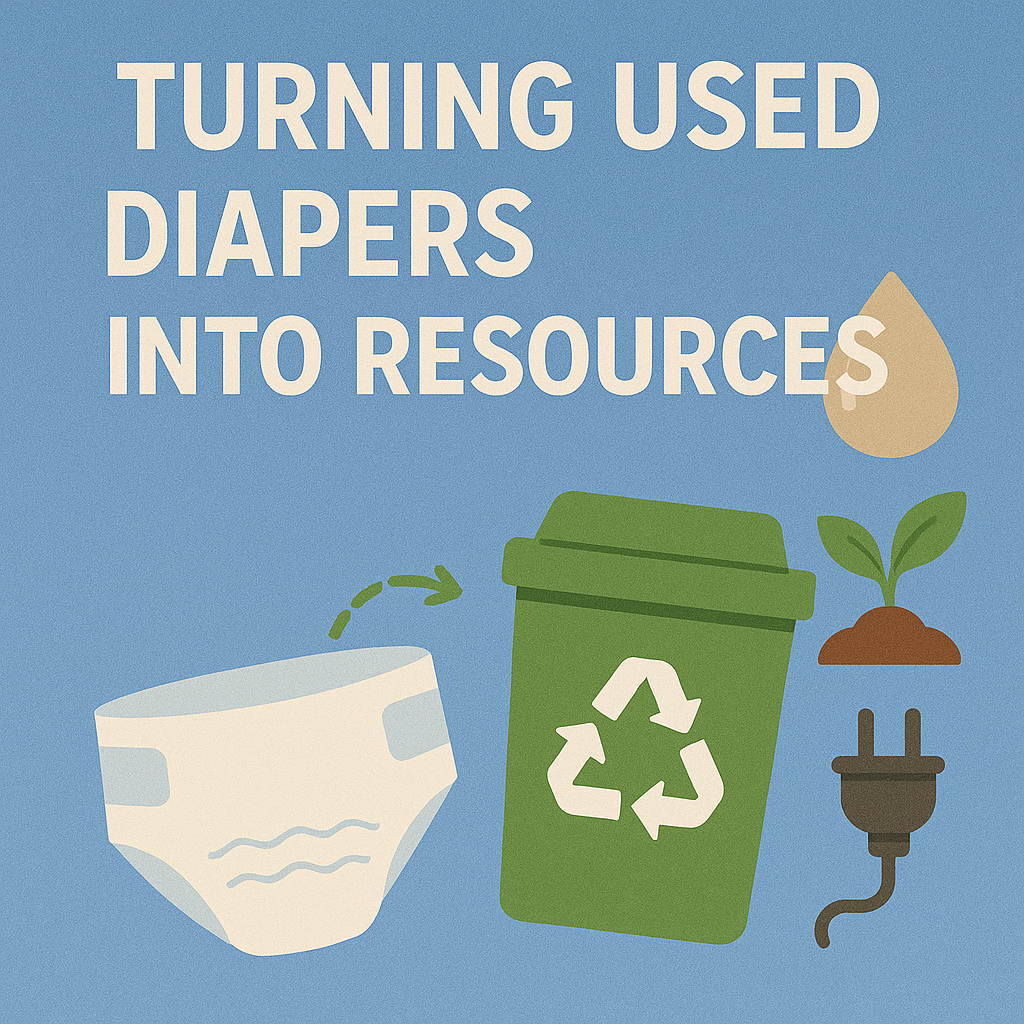Building a Stadium Together: Inspired by Tradition and Community
Fukushima United FC, a professional soccer club in Japan’s third division (J3 League), has announced its concept for a new stadium: “a stadium built by everyone.”
What makes this project remarkable is its ambition to become Japan’s first fully wooden stadium and the world’s first “circular” wooden stadium—meaning it is designed for dismantling, reuse, and material circulation.
The inspiration comes partly from “Shikinen Sengu”, an ancient Shinto practice of rebuilding shrines every 20 years using fresh timber. This tradition symbolizes renewal and continuity, and Fukushima United plans to adapt the idea by constructing the stadium with layered timber sourced locally from Fukushima Prefecture. Every part is designed to be disassembled and reused, promoting resource circulation.
The building process itself is envisioned as a festival-like event where club members and local residents can actively participate—cutting, assembling, or crafting wooden components. By turning construction into a community celebration, the stadium is intended to become more than a sports facility: it will serve as a living symbol of regional identity and resilience. Educational programs in forestry and woodworking are also planned to ensure skills and knowledge are passed on to future generations.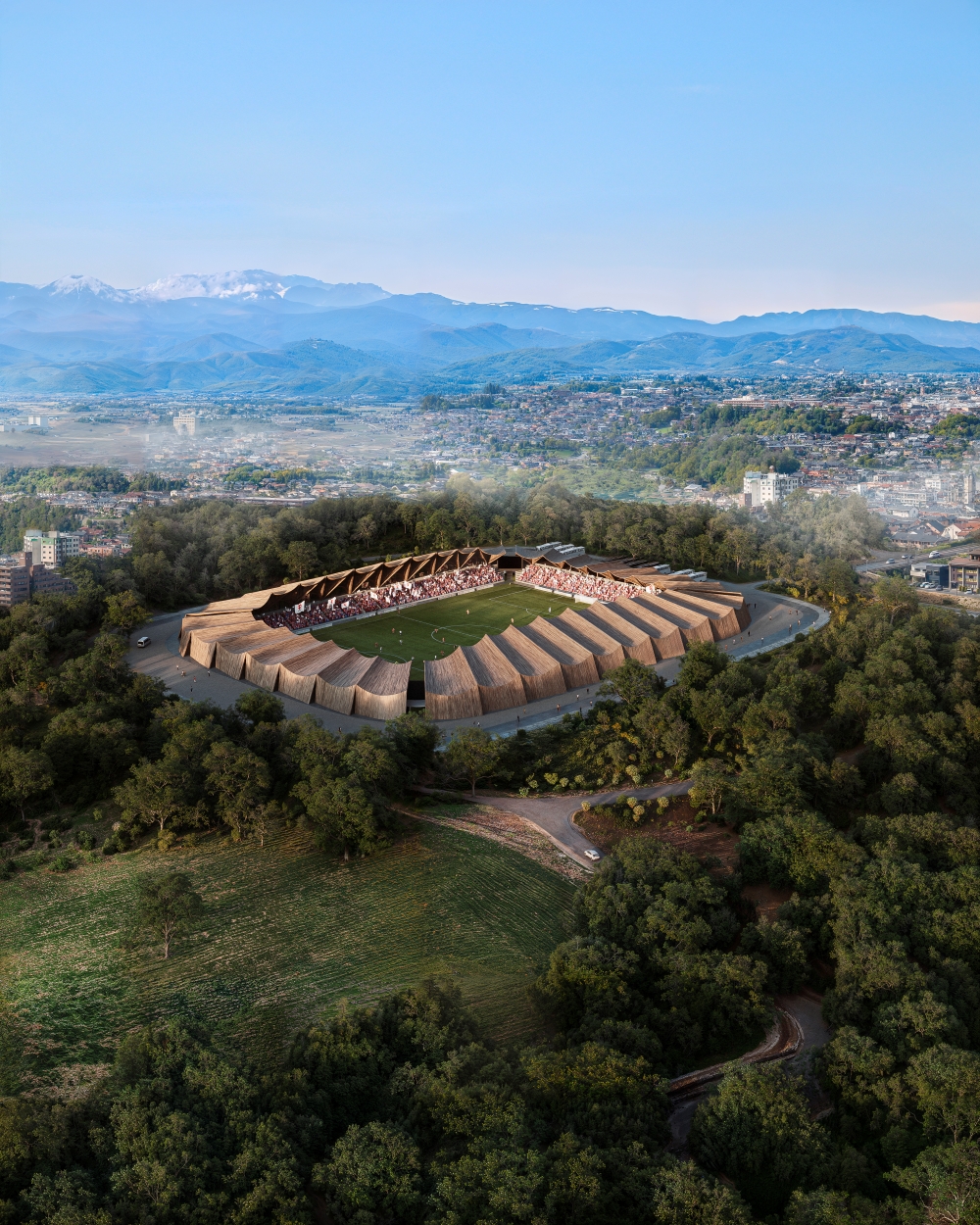
Harnessing Fukushima’s Climate for Energy Self-Sufficiency
The stadium will also embody sustainability through a natural energy circulation system tailored to Fukushima’s basin climate—hot summers, cold winters, and heavy snowfall. Key features include:
- Roof design: Provides shade in summer while blocking cold winter winds.
- Adaptive walls: Allow summer breezes to flow through, while shielding against winter drafts.
- Rainwater reuse: Collected, filtered rainwater will be recycled.
- Snow and ice cooling: Snow stored in winter will be used to cool the facility during summer.
These measures reduce energy consumption, while renewable power generated onsite will be stored in batteries to achieve energy independence. Ultimately, Fukushima United aims for certification under the Living Building Challenge, considered one of the world’s strictest sustainability benchmarks.

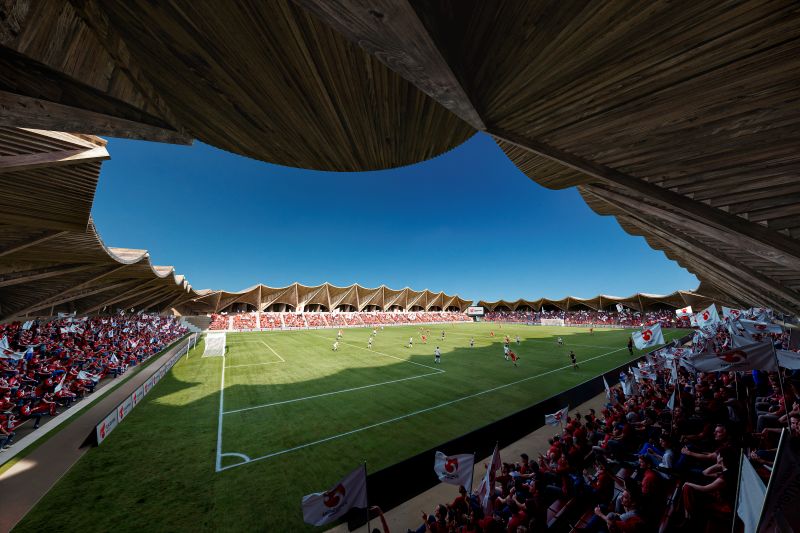
A Symbol of Renewal: Fukushima’s Phoenix Spirit
The project is deeply tied to Fukushima’s identity. The club emblem features a phoenix, representing rebirth—an especially powerful symbol for a region recovering from the 2011 earthquake, tsunami, and nuclear accident.
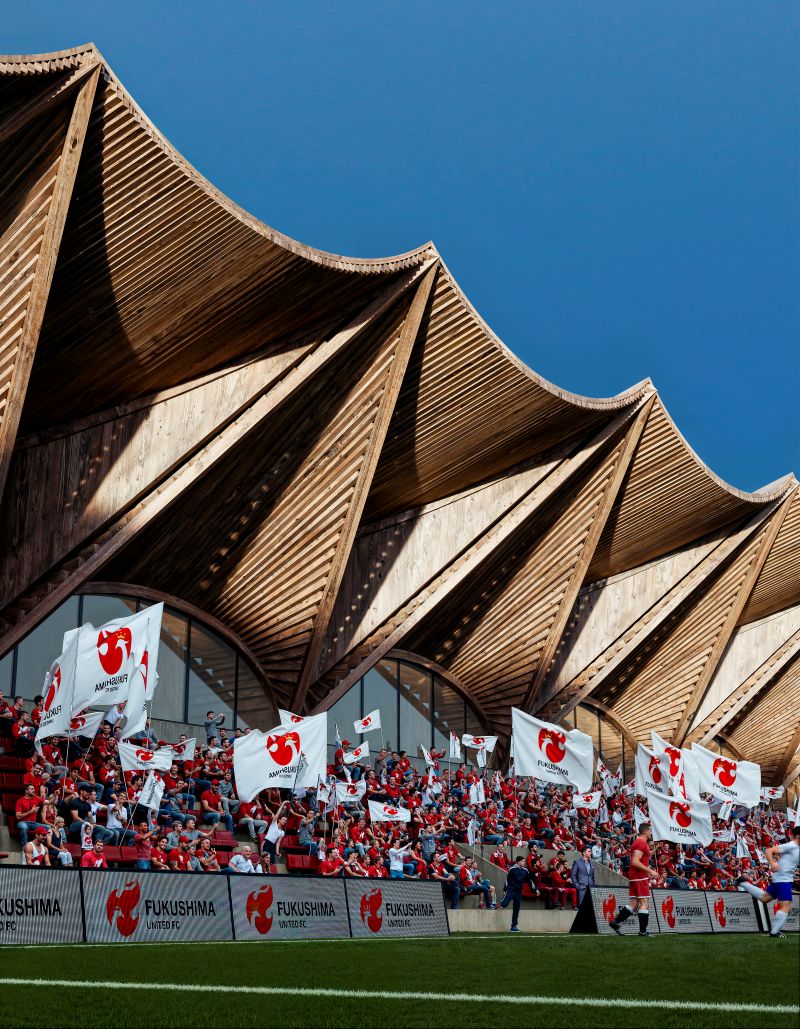
By creating a regenerative stadium built from local wood, shaped by community hands, and powered by nature, Fukushima United hopes to send a message of hope and resilience from Fukushima to the world. This multi-layered initiative—blending local resources, citizen participation, and cutting-edge environmental design—promises to become not only a home for soccer but also a landmark of cultural and ecological regeneration.
Reference:https://fufc.jp/news/12523/

